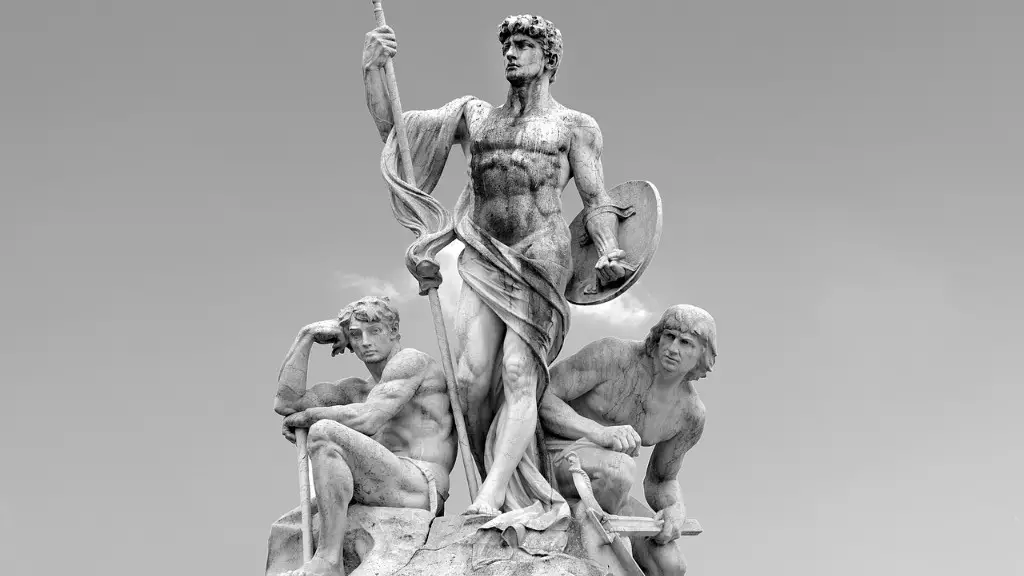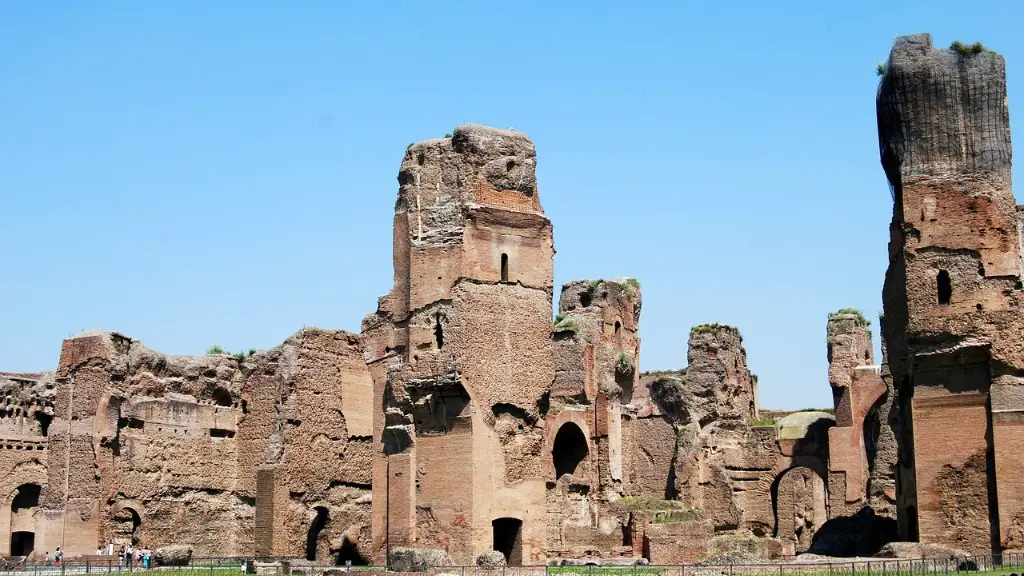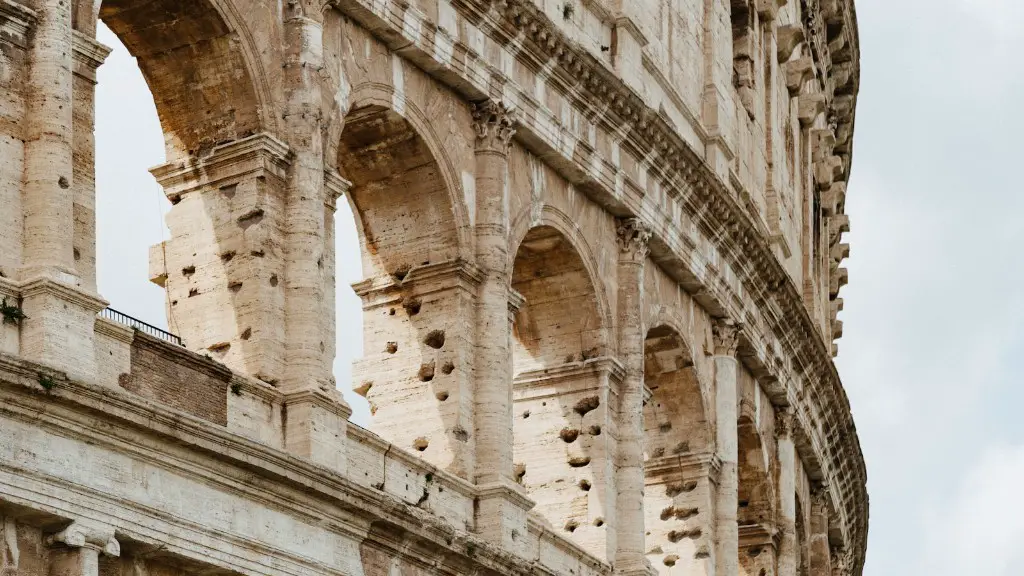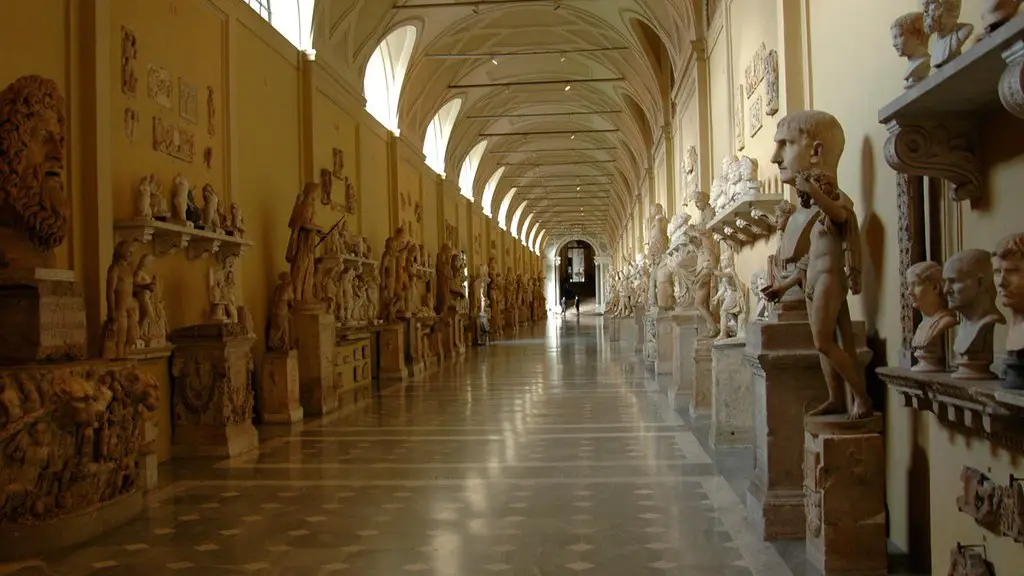Ancient Rome was, and still is, an iconic and powerful empire that held sway over many different territories during its prosperous reign. It had a strong and well-organized government, a strong military, and a strong currency. As such, much of the Mediterranean Basin and even beyond was associated with this great empire. Naturally, there were privileges and benefits attached to membership in this powerful empire. These privileges and benefits, which have been well-studied over the centuries, can still be admired today.
One of the most important privileges of being a Roman citizen in those days was the right to participate in politics. All citizens had the right to vote in the Senate, the main legislative body of the Roman Republic. This right guaranteed that the voice of citizens in decisions taken in the Senate and in the City Council was heard. It also ensured that the interests of Roman citizens were respected.
In addition to the political privileges, Roman citizens also enjoyed certain financial rights. They were eligible for certain exemptions from taxation, which enabled them to manage their finances with greater security and stability. Furthermore, citizens were granted the right to free legal assistance should they find themselves in a court dispute. This was particularly beneficial to the poorer members of Roman society.
The social privileges of being a Roman citizen were immense. Roman citizens were endowed with unbeatable social standing, even when compared to other members of the empire. Among these privileges were the right to marry citizens of another state, the right to travel anywhere in the empire with impunity, and the right to receive medical care upon proof of citizenship. In this sense, Ancient Rome did its best to ensure that its citizens enjoyed an equitable lifestyle.
Overall, membership in the Roman Empire provided an invaluable source of privileges and advantages to its citizens. This was one of the reasons why Roman citizenship was so prized and valuable even then. It was possible to trace the origins of many current civil rights to the Ancient Roman period, and it is in no small measure a salute to the robustness of the political and social systems of that departed empire.
Education Privileges for Ancient Romans
Despite the fact that many ancient cultures did not focus on education, Romans were remarkably advanced in this regard. They understood the importance of refining the minds of their citizens, so that the population could be educated enough to contribute meaningfully to the affairs of state. As such, Roman citizens were granted free access to education, and free access to books on various topics. This not only helped to advance learning among the citizens of Rome itself, but it also helped spread the knowledge of this great empire far and wide.
In addition to the general educational privileges, children of Roman citizens were afforded even more benefits. They had access to professional tutors, allowing them to pursue their preferred subjects, and they also had the right to receive monetary encouragement to perform better in school. Also, children of Roman citizens could receive special awards and honors for their academic achievements. As a result, even children not born in the Empire of Rome could thrive if they had the appropriate support.
Notably, Roman education was open to all genders and all members of society. This was a divergence from other cultures, where only certain classes or sections of society were granted access to education and knowledge. Also, Roman education focused particularly on developing ethical virtues among students, as opposed to merely honing their intellects.
Moreover, Ancient Roman education was not flawed like modern education. It was not top-heavy and focused more on storytelling and active learning rather than rote memorizations. As such, Ancient Roman education focused more on learning through interaction and experience, rather than on acquiring regular knowledge.
Religious Privileges of Ancient Rome
Ancient Rome was a polytheistic society, and the cult of Jupiter, Juno, Minerva and other gods and goddesses was very popular. This naturally carried its own series of privileges for citizens of the Empire. For example, anyone who claimed to worship the gods and goddesses of Rome was given exemption from many of the taxes and duties that were obligatory for non-believers.
On a broader level, Ancient Rome was famous for its religious tolerance. This was true even for religions and cults that were entirely alien to the Roman state. Strangely enough, the polytheistic Romans never sought to restrict the spread of monotheistic religions, so long as those believers acknowledged the authority and the power of the Roman Senate. This led to a uniquely cosmopolitan population in the City of Rome.
Further privileges of the polytheistic practice in Ancient Rome included access to religious festivals and ceremonies. In this sense, citizens of Rome regularly celebrated the joyous religious holidays that were celebrated across the Empire. These ceremonies included the Saturnalia, which was celebrated out of respect for Saturn, the god of sowing, and the Floralia, which was celebrated in dedication to Flora, the goddess of flowers. These ceremonies often included music and dancing, and such feasting and merrymaking were highly appreciated by the citizens of Rome.
In addition to the free celebrations, citizens of the Roman Empire were lucky enough to be able to behold the luxurious temple complexes that were built around the different gods and goddesses. These incredible architectural masterpieces gave the residents of Ancient Rome much pleasure and pride in their culture, as well as reassuring them of the strength and grandeur of their beliefs.
Legal Rights for Ancient Roman Citizens
The number of legal rights granted to Ancient Rome’s citizens is surprising by modern standards. It was necessary in order to allow citizens to defend their property, families and interests in case of disputes. In this regard, citizens could not be thrown in jail without a trial, and witnesses had to be called in accusation regarding a citizen’s declared offense. Without trial, citizens were entitled to be released. It was also impossible to impose capital punishment on its citizens without a trial.
In addition, women in Ancient Rome had considerably more rights than in past centuries. It was possible for women to manage their own property and manage their own businesses, and contracts could be drawn in their name. Marriages, however, were still heavily weighted in favor of the husband and his authority. Nevertheless, the fact that Roman women were granted the right to prosecute and defend themselves from accusations was revolutionary in the times.
Another important aspect of Ancient Roman legal systems was that citizens were entitled to plead their case from behind a veil of anonymity. This provided an unprecedented level of safety to citizens as it allowed them to defend their innocence without having to suffer public humiliation. Furthermore, secretly-held evidence was always hearsay and not deemed as sufficient for conviction.
In conclusion, it is easy to admire the incredible level of privileges and rights that were granted to citizens of Ancient Rome. This was an incredible empire that recognized the importance of its citizens and the value of protecting them from various abuses. It is incredible to see the genesis of many of our current civil rights to have traceable origins in Ancient Rome’s laws and viewpoints.
Technological Advantages of Ancient Roman Citizens
While Ancient Rome is generally thought of as an unenlightened era of history, the truth is that its engineers and builders were responsible for incredible and impressive projects. In addition to the incredible infrastructure that was created and maintained, there were also technological devices designed for the benefit of citizens.
The most famous of these devices were the water-powered devices, for which the Romans were particularly famous. These devices were used to pump water from different sources, to provide people with fresh drinking water. This was a welcome advancement for Ancient Rome as it allowed its citizens to enjoy a certain level of prosperity that had been denied to prior generations.
In addition to water technology, the Romans also dabbled in irrigation systems, the use of aqueducts and similar engineering feats. This enabled farmers to cultivate more land, allowing more citizens to benefit from the agricultural efforts of their peers. In this sense, Ancient Rome was not just a great superpower of its time, but also a center of technological advancement.
These innovations and achievements made Ancient Rome a utopia for citizens, for all of their needs were taken into account. No other empire or society of the era could boast the same achievements, and Ancient Rome certainly lived up to its reputedly grand destiny.
Trade and Business Privileges in Ancient Rome
Being a Roman citizen was essential for engaging in business with other nations, and it was a great advantage for Roman merchants. This was because Roman citizens had the right to travel anywhere in the Empire with impunity and without having to pay the least amount of taxes. This enabled them to become powerful merchants and traders in different cities, as they could transport goods with less interference from customs or taxes.
In addition, having Roman citizenship was also essential in forming agreements with other entities. Roman citizens had protection from the government in case of disagreements or contract disputes, and they were privileged enough to receive free legal help should the need arise. This allowed them to undertake new business ventures with confidence, and to develop existing businesses and relationships.
Furthermore, Ancient Rome imposed no restrictions on foreign traders so long as they respected the law and the customs of their intended business partners. This effectively served as a magnet for foreign traders, who found Rome to be an ideal place for trade because of its stability and its relative freedom from taxes and excessive regulations. The business climate of Ancient Rome was even a great draw for traders from other empires, and Ancient Rome’s reputation as a great trading center lives on to this day.
As such, Roman citizens enjoyed remarkable business privileges and advantages in Ancient Rome. This was essential for the development and flourishing of commerce, and it also allowed many bright minds to pursue lucrative opportunities in foreign lands. It is this combination of luck and privilege that made Ancient Rome the vibrant and powerful empire that it was in its heyday.
Archiecological Wonders in Ancient Rome
The impact of Ancient Rome was so immense that it is still visible today in many parts of the world. Most especially, the many archaeological sites across the Mediterranian region still testify to the glory days of the Roman Republic. This is perhaps the most tangible reminder of the privileges that accompanied Roman citizenship in those days.
These architectural marvels not only act as monuments to the achievements of Roman ingenuity, but they also serve as reminders of the essential privileges that were enjoyed by citizens in those days. From the Colosseum and the Circus Maximus to the Pantheon and the Forum, travelers can still gasp at the incredible genius of Ancient Roman architects.
In addition, many of the ruins in Ancient Rome have been faithful restored or preserved. This has helped scholars and travelers alike to understand the fundamentals of the Roman Republic in greater depth. In this way, Ancient Rome has left an invaluable legacy for the modern world, which gives testimony to the greatness of the privilege that were accorded to Roman citizens.
In conclusion, it is clear to see why Roman citizenship was highly valued and sought after in those days. The privileges and benefits that came with membership in the Roman Empire were invaluable and incomparable, and these privileges have helped shape Modern society as we know it.





